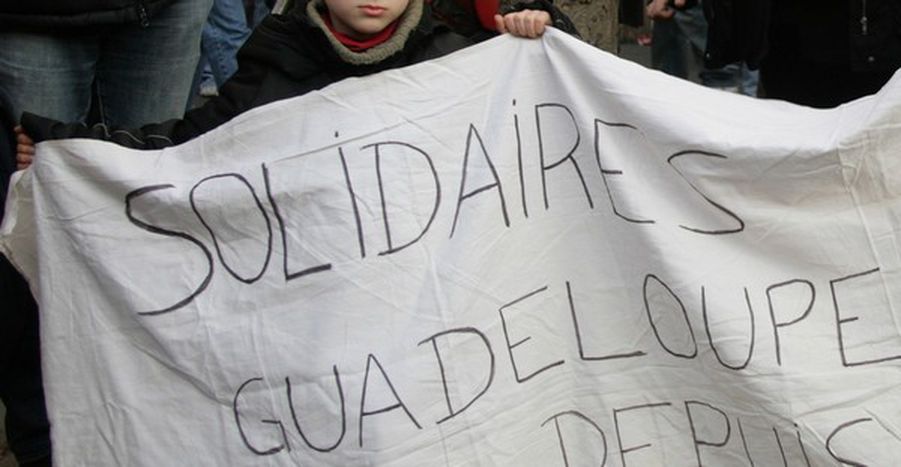
Island fever: Martinique and Guadeloupe’s 'people are suffocating'
Published on
Translation by:
 Fiona Herdman Smith
Fiona Herdman Smith
The fuse lit in Guadeloupe in reaction to high living costs and an alienating 'cultural integration' has ignited Martinique. Could French Guiana in South America and La Réunion in the Indian Ocean follow, before the flames reach mainland France? Opinion from a young Martinican
The protests that began on the island of Martinique on 5 February 2009 began in solidarity with Guadeloupe. However, they also compel Martinicans to consider their own demands. At present, the future looks bleak. 5 February was the day everything crystallised. Thousands of Martinicans took to the streets to protest against a situation 'which has gone on long enough'. Amidst the commotion and the initiation of negotiations with the prefect of the Martinique Region, the '5th February Collective' was born.
A historic protest amongst French overseas territories
Since the union for a popular movement ('Union pour un mouvement populaire', UMP) won control of the French territory, successive reforms have provoked rebellion amongst the Guadeloupan and Martinican populations. Eventually it was the nationwide strike on Guadeloupe led by the Union against exploitation ('Lyannaj Kont Pwofita-syon', LKP) which allowed the population of the two islands to dispel their illusions about the 'unacceptable' and to begin a contagious reflection on its position. This social protest was soon said to be, even declared to be, historic amongst French overseas territories.
133 demands in Martinique
This protest comes in the wake of a social crisis, as is clear from the list of 146 demands concerning all the sectors of activity affected by French state reforms and classified into ten chapters in Guadeloupe’s appeal, and the 133 demands made by Martinique. This social crisis confirms that the system is running out of steam and the people of the Caribbean are suffocating. The French president Nicolas Sarkozy finally addressed the issue on 19 February 2009, setting out a general framework for dealing with the demands of the two 'countries', Guadeloupe and Martinique.
The state should take charge if its responibilities
However, beyond structural reform measures and in spite of the funds made available in certain sectors and the state’s investment to sort out this crisis, it is the idea of organising the general states in these two overseas 'countries' which is striking. It is a fairly unusual proposition and a substantial project. It remains to be seen how we can extricate ourselves from this crisis as quickly as possible. The confidence of the Guadeloupan and Martinican people has evaporated. They are continuing to demand that the state takes charge of its responsibilities. However, its disengagement is no longer a myth and the various components of our society are now back-to-back.
Absent Europe
The current power struggle between the state, bosses, territory collectives, union representatives, politicians and civil society illustrates a profound malaise. The backdrop for this malaise is dignity and respect for the identity, politics, society and economy of a region. It is a frustrating pattern upon which relations between France, Guadeloupe and Martiniaue are based, and it could spread within France’s conscience. It remains to be seen whether this protest will give rise to a genuine process of social reform.
Will this protest give rise to a genuine process of social reform?
Where is the European Union in this story and what can it do? No-one is talking about it. Not even the political and institutional protagonists could try to formulate a European view, even a negative one, regarding these 'ultraperipheral' regions of the EU.
The author, 30, is completing a Phd in political sciences at the University of the Antilles and Guyana in Pointe-à-Pitre
Translated from Martinique et Guadeloupe : « Une population qui étouffe »


